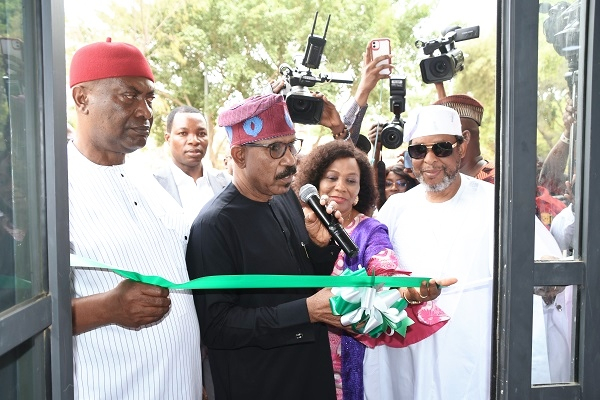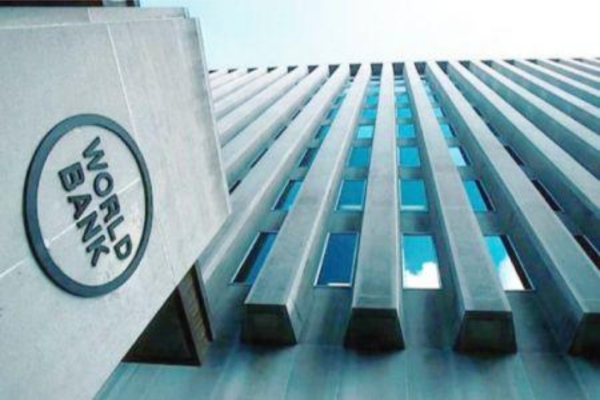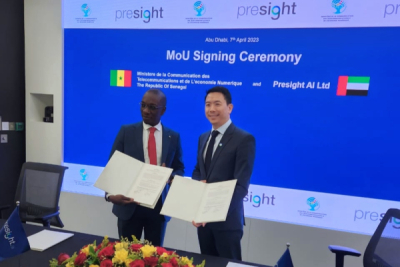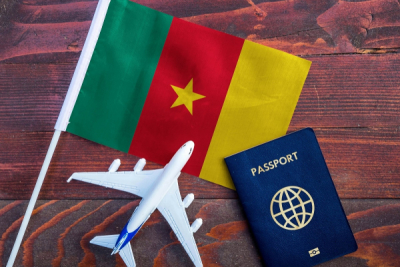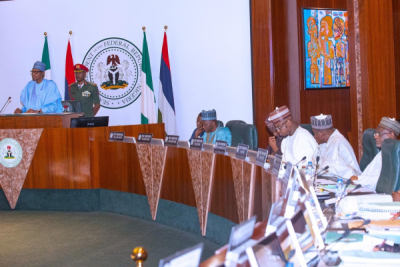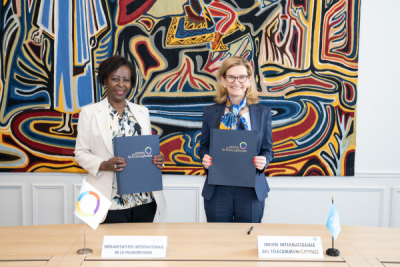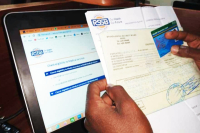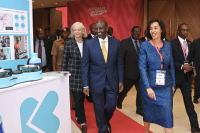
Public Management (483)
According to UNESCO, investing in science, technology, and innovation (STI) is essential for economic development and social progress. But, it is all the same important to ensure access to the right information about the sector to enable effective and appropriate usage.
The Federal Government of Nigeria, on Tuesday, April 11, officially inaugurated the Nigerian Science, Technology and Innovation Television called "NSTI TV".
According to Minister of Science, Technology, and Innovation, Dr. Adeleke Olorunnimbe Mamora (photo, center), NSTI TV is a multilingual science channel that will broadcast content in English, Yoruba, Igbo, and Hausa and will be accessible on any internet-enabled device.
“As part of our plans for ease of access to information, we have developed an indelible and robust Television that is Terrestrial, Satellite, and Internet-Based Science Over-The-Top (OTT) TV channel dedicated to Science and Technology knowledge dissemination, with a strong commitment to spreading scientific awareness, especially with Nigerian perspectives, ethos, and cultural milieu,” the government official said.
Over the past few years, Nigeria has implemented several actions to advance STIs and integrate them into Nigerians’ daily habits. According to Adeleke Mamora, if effectively exploited, they can propel Nigeria into the list of the top 20 economies in the world by 2030.
This television station was thus introduced as part of the Implementation of Executive Order No. 5 For the Development Of Local Content In Science, Engineering, And Technology. To this end, it will focus on Nigeria's contributions to STI by publishing the latest results and products of all research institutions and the latest developments in STI in Nigeria and the world.
According to the Director General of the National Space Research and Development Agency (NASRDA), Dr. Halilu Shabba, NSTI TV is a milestone for the agency as 25% local content was used in the creation of the channel.
Samira Njoya
Kenya wants to become a reference in digital transformation in Africa by 2027. To finance the projects it plans for that purpose, it seeks the support of the World Bank and private investors.
The World Bank will provide $390 million to finance the construction of Kenya’s digital infrastructure, a release dated April 5, 2023, informs.
According to the Bretton Woods Institution, the financial resources will fund the first phase of the Kenya Digital Economy Acceleration Project. That first phase focuses “on expanding access to high-speed internet, improving the quality and delivery of education and selected government services, and building skills for the regional digital economy.”
“Broadening access to digital technologies and services is a cross-cutting pathway to accelerate economic growth and job creation, improve service delivery, and build resilience,” said Keith Hansen, World Bank country director for Kenya, Rwanda, Somalia, and Uganda.
A few weeks ago, Minister of Digital Economy Eliud Owalo announced that Kenya was in talks with the World Bank to obtain $600 million to fund its Digital Superhighway Project.
Phase 1, which has been financed, will run from 2023 to 2028. Phase 2 will run from 2026 to 2030, focusing on building a secure, data-driven environment to enhance digital service delivery and innovation for the regional digital economy.
According to Keith Hansen, the Kenya Digital Economy Acceleration Project aims to make the country's growth more equitable by reducing disparities in digital skills and connectivity, and expanding the digital marketplace.
Samira Njoya
Senegal, through its digital strategy, aims to become an innovative leader in Africa by 2025. However, several projects are still lagging, two years before the deadline. Therefore, the country is multiplying partnerships to accelerate its implementation.
Last Saturday, the Senegalese Minister of Communication Moussa Bocar Thiam (photo, left) announced a memorandum of understanding with the UAE company Presight ai LTD.
On Twitter, the government official indicated that the new partnership aims to support Senegal in the implementation of various projects, namely digital identity and addressing and tax digitization projects.
Under the newly signed MOU, Senegal will receive financial support for the implementation of the digital projects mentioned. The digital addressing project was initiated in February 2021 to map the entire national territory and assign a digital address to each geographical location.
The digital identity project, launched on June 24, 2022, aims to provide an operational, reliable, secure, and accessible digital identity to Senegalese users by 2024. As for the digitization of taxes, the project was launched several years ago, to allow online tax filing and payment.
On Monday, April 10, 2023, Moussa Bocar Thiam also signed a memorandum of understanding with the company PANAMAX in Dubai. That MoU finances the development of a digital post solution and covers the company’s participation in the digital week "SENEGALCONNECT" - May 16-20, 2023 in Dakar- organized by the Ministry of Communication, Telecommunications, and Digital Economy.
Samira Njoya
Cameroon, like several African countries, has officially adopted online visas. The system announced months ago will become effective in a few days.
Starting from April 30, 2023, applications for Cameroonian visas will be exclusively made online, announced Minister of External Relations, Lejeune Mbella Mbella, through a release issued on Thursday, April 6.
According to the release, regardless of the applicant’s geographic location, visa applications must be submitted on www.evisacam.cm following established administrative procedures. After the application, visa fees will be paid via various methods, namely Mastercard, Visa, Paypal, Mobile Money, Orange Money, Moov, Wave, Safaricom, Airtel, Vodacom, and Africell.
An online visa authorization will then be issued to the applicant who will be able to go either to a diplomatic mission or to a border post to retrieve the visa within three days. In this final stage, applicants’ biometric data, fingerprints, facial images, etc., will be collected.
The Cameroonian government received the equipment for the project from Abidjan-based company Impact Palmarès R&D SAS in June 2022. The bill updating the legal framework was submitted to the National Assembly on July 2, 2022, and the decree updating the conditions of entry, stay, and exit of foreigners in Cameroon was signed last month by the President of the Republic, Paul Biya.
The reform prescribed by the President of the Republic is the first step toward the digital transformation of Cameroon’s diplomatic apparatus. According to Minister Lejeune Mbella Mbella, "the e-visa system [aims] to make Cameroon a more attractive destination, address the grievances of the Cameroonian diaspora and upgrade the consular system to international standards.”
Samira Njoya
Nigeria plays a key role in the African entrepreneurial ecosystem. To consolidate this position, the country is staking resources to further stimulate innovation, create jobs and promote economic growth.
Muhammadu Buhari (photo, left), the outgoing president of the Federal Republic of Nigeria, inaugurated the National Council for Digital Innovation and Entrepreneurship (NCDIE) on Wednesday, April 5.
The NCDIE, chaired by President Buhari, has 13 other members and its mission is to promote the development of the country's digital economy and create an enabling environment for entrepreneurs to flourish.
The council will also oversee the implementation of the Nigeria Startup Act 2022, a law enacted last December to stimulate the growth of innovative startups and small and medium enterprises (SMEs) in the country.
“The law, which was developed as part of a collaborative approach between the Office of the President and the Ministry of Communications and Digital Economy, with support from the technical ecosystem, provides incentives and support to start-ups, such as tax breaks, access to finance, ease of doing business, intellectual property protection and participation in government procurement,” said Muhammadu Buhari.
Nigeria's start-up ecosystem still faces significant challenges such as access to finance and the high cost of creating original products. Despite these obstacles, Nigeria has been at the forefront of startup growth in Africa in recent years with more than $4 billion raised between 2019 and 2022, the president reported.
Thus, the implementation of the Nigeria Startup Act will be an important step in addressing these challenges and promoting the growth and inclusiveness of the national startup ecosystem. According to President Muhammadu Buhari, this will help consolidate and develop the gains made in the digital economy.
Samira Njoya
In recent years, digital tools have proven important for socioeconomic development. However, most African countries are still lagging in terms of digitization, making them unable to capitalize on the opportunities offered by those tools. It is therefore urgent for international partners to support the countries to accelerate digital transformation, therefore facilitating development.
Last Monday, the Secretary General of the International Organization of La Francophonie (IOF), Louise Mushikiwabo (photo, left), and the Secretary General of the International Telecommunication Union (ITU), Doreen Bogdan-Martin (photo, right), signed a Joint Declaration on Cooperation to strengthen the partnership between the IOF and the ITU.
According to the release issued by the IOF, "the actions envisaged through this declaration aim to contribute to ensuring connectivity for all and a sustainable digital transformation. The areas of collaboration taken into account are advocacy for digital connectivity and respect for multilingualism during international consultations and exchanges.”
The declaration also focuses on the acceleration of digital transformation in French-speaking countries, valorization of the expertise of French-speaking professionals, and letting populations -the youth and women notably- get a good grasp of digital issues.
For several months now, the IOF has been multiplying partnerships for the development of the digital sector in French-speaking countries, African countries included. In December, the organization signed a framework cooperation agreement with the West African Development Bank (BOAD) to support digital transformation in WAEMU countries, namely Benin, Burkina Faso, Côte d'Ivoire, Guinea-Bissau, Mali, Niger, Senegal, and Togo.
The declaration is in line with the decisions taken during the last Summit of La Francophonie in Djerba, Tunisia -held on November 19-20, 2022, on the theme "Connectivity in digital diversity as a vector of development and solidarity in the Francophone space"- and the Strategic Plan for the ITU 2024-2027 adopted at the Plenipotentiary Conference held in Bucharest, Romania in October 2022.
Samira Njoya
East African economic powerhouse Kenya is facing its worst drought in decades. With Taifa-1, the country will be able to predict drought-related disasters and speed up the response of emergency programs.
The Kenya Space Agency (KSA) will launch its first operational Earth observation satellite, called Taifa-1, next week, the government announced Monday, April 3.
According to a joint statement from the Ministry of Defense and the Kenya Space Agency, "Taifa-1," or Nation-1 in Swahili, is scheduled to launch on April 10 aboard SpaceX's Falcon 9 rocket from Vandenberg Space Base in California.
According to Hillary Kipkosgey (photo), KSA's director general, "The launch of Taifa-1 is a moment of national pride, because it will play a critical role in decision support in several socioeconomic activities, including environmental monitoring, natural resources management, and agriculture."
Taifa-1 was jointly developed by the University of Nairobi and the Sapienza University of Rome, with launch support provided by the Japan Aerospace Exploration Agency and the United Nations Office for Outer Space Affairs (UNOOSA).
For Hillary Kipkosgey, the satellite will help build the country’s capacities in space, systems engineering, space operations, data processing and analysis, services, and ground station operations.
With the launch of Taifa-1, Kenya joins a very closed circle of African countries that have at least one satellite in the orbit. The first African country to launch its satellite into orbit was Egypt. It was followed by a dozen countries and the continent now has more than 40 satellites in total, according to the platform Space In Africa.
Samira Njoya
A few years ago, Rwanda embarked on a massive digital transition that covers every sector.
The Rwanda Social Security Board (RSSB), on Saturday, April 1, launched an innovative digital medical insurance system called RSSB KWIVUZA.
On Twitter, the institution explains that the platform will, among other things, streamline healthcare operations and simplify payment processes. According to Regis Rugemanshuro, CEO of RSSB KWIVUZA, the system was tested extensively during the pilot phase, with positive feedback from the 30 health facilities that were integrated.
Currently, the system covers healthcare mutual services with plans to include the Rwanda Health Insurance (RAMA) and high-level healthcare facilities such as district and provincial hospitals, private hospitals, clinics, polyclinics, and pharmacies, by the end of the year.
RSSB is expected to become the platform where 96% of healthcare mutual invoices are processed since it will be the standard invoicing platform of every healthcare institution. The platform will improve healthcare providers’ payment collection deadline, reducing it to a maximum of 15 days, compared to 80 days previously, which will significantly improve their cash flow and liquidity.
This platform is launched after another one introduced in early February by RSSB to give members an accurate idea of their pension contributions. It is one of the many innovations in the RSSB 2020-2025 strategic plan to transform RSSB into a high-performance, data-driven organization by 2025.
Samira Njoya
With the global development of tech giants like Amazon, Facebook, and Netflix, the importation of digital services has significantly increased in Africa in recent years. To enable every country to benefit from the development, a global tax framework was elaborated. It is expected to become enforceable in January 2024.
Kenya will align its digital tax with the inclusive framework spearheaded by the Organization for Economic Cooperation and Development (OECD). President William Ruto (photo, center) announced this to investors on Thursday, March 30, at the American Chamber of Commerce Regional Business Summit.
“Following discussions with players in this sector, we have committed to review this tax regime and align it with the two-pillar solution currently being developed by the OECD inclusive framework,” President Ruto said.
The OECD finalized the reform of the international tax system aimed at solving tax base erosion and multinationals’ profit-shifting problems. The framework is based on two pillars, the first of which is to align tax rates more closely with local market engagement. To date, 138 jurisdictions have approved it.
Under the former administration, Kenya suspended its support for the global minimum tax rate, which would have seen the government suspend the collection of the digital services tax from tech giants such as Google, Facebook, and Amazon.
At the time, the country expressed its uneasiness with the terms of the agreement that would have seen the end of the digital services tax, which is currently 1.5% of sales made by foreigners in the country. After several negotiations, Kenya finally decided to align itself and sign the pact before its implementation on January 1, 2024.
According to OECD estimates, if Kenya joins, the tax authorities could collect between 3.3 billion shillings ($25 million) and 5.3 billion shillings in taxes, more than 10 times the 400 to 500 million shillings they currently collect each year in digital services tax.
In addition to Kenya, three other countries, namely Nigeria, Pakistan, and Sri Lanka have not yet signed the declaration.
Samira Njoya
Government-owned postal company SOPECO wants to become a leading player in the digitization of the country’s services. To achieve that goal, it is joining forces with technology partners specialized in the field.
The Indian group ATDXT will support the Congolese Posts and Savings Company (SOPECO) in the digitization of its activities. A partnership agreement was signed, Thursday, March 29, to this effect between the two companies to create a digital finance platform promoting savings and microlending.
"We aim to popularize these inclusive products that range from digital savings and wallets to micro-loans, through a digital platform [that can be used from] a telephone. This will allow consumers to for instance make purchases without using cash and resell services, generating additional income to sustain their business,” said Ludovique Mbossa (photo, right), SOPECO’s general manager.
Thanks to that agreement, SOPECO joins the Senegalese and Djiboutian state postal companies that have already taken steps to digitize their activities. Under that deal, a digital savings platform, "Nova digitale", will be set up for SOPECO to improve financial inclusion by promoting access to financing for individuals and SMEs that are still left behind.
This partnership comes four months after the agreement signed between the Indian group ATDXT and the Congolese Minister of Digital Economy, Léon Juste Ibombo, to support the country in the realization of several projects, the most important of which is the digitization of SOPECO.
Samira Njoya
More...
In Nigeria, only a few states have access to reliable and affordable Internet. To address this deficit, the federal government is stepping up actions such as setting up and funding digital projects.
The Nigerian government on Wednesday (March 29) agreed to provide free broadband Internet access in 75 public places, including 20 airports, several tertiary institutions, and six marketplaces in the 36 states of the Federation. The Federal Executive Council of Nigeria (FEC) approved two contracts worth N24.20 billion ($52.5 million) for that purpose.
According to Digital Minister Isa Ali Pantami, the cost of providing broadband infrastructure to tertiary institutions and airports is N18.95 billion, while the second approval to provide broadband to selected markets is N5.25 billion.
“We want to ensure that students and staff benefit from unlimited internet. For airports, we know the difficulty when you land without any connectivity,” said Isa Ali Pantami.
“[...] for markets, it’s to support innovation-driven enterprises that are being championed by the Massachusetts Institute of Technology, where we try to give global visibility to our innovators, to our micro, small and medium enterprises, so that their market is not going to be narrowed and restricted only to our local communities,” he added.
The funding will finance the 2nd and 3rd phases of a broadband infrastructure project launched by the federal government. In 2019, the FEC approved a memo for the unlimited provision of Internet in 18 universities under the first phase of the project.
The said project is in line with the Nigerian National Broadband Plan 2020-2025, which aims to increase broadband penetration to 70% nationwide.
Samira Njoya
The digital revolution offers great opportunities for Africa. However, to capitalize on those opportunities for socioeconomic progress, the continent needs to develop its digital ecosystem.
Egypt and Germany plan to enhance their digital cooperation. The issue was discussed by the Egyptian Minister of Communications and Information Technology, Amr Talaat, and the German Ambassador in Cairo, Frank Hartmann, during a meeting between the two parties in Cairo last Tuesday.
According to a release from the Egyptian Ministry of Communications and Information Technology (MCIT), the two parties discussed current and future ICT cooperation projects, including the "Supporting e-Government and Innovation in the Public Administration (InnoPA)" project, being implemented in partnership with the German Agency for International Cooperation (GIZ).
“During the meeting, the ICT Minister highlighted MCIT's keenness to leverage the distinguished expertise of the German side in IT and research and development (R&D) based on modern technologies, such as Artificial Intelligence (AI) and digital transformation,” the release informs.
Indeed, for some years now, Germany has been one of the most technologically advanced countries. According to the Digital Quality of Life Index (DQL Index), the global ranking of countries according to digital quality of life published in October 2022, Germany was the 3rd just behind Israel, and Denmark. The DQL index took into account 5 criteria, namely the quality of the Internet connection, e-government, cyberinfrastructure, Internet accessibility, and cybersecurity capabilities.
By strengthening its digital cooperation with such a country, Egypt wants to capitalize on Germany’s experience to successfully implement the projects planned in its 2022-2026 Country Strategy Paper while selling its outsourcing services and building a “talent pool capable of exporting ICT services.”
Meanwhile, the German ambassador to Egypt, Frank Hartmann said that his country wants to open its market to benefit from the pool of Egyptian freelancing talent working in the IT sector.
Samira Njoya
The Kenyan government has embarked on a vast digital project to let the population benefit from information technologies. To quickly achieve its objectives, it needs as many partners as possible.
Kenyan ICT Minister Eliud Owalo recently called private investors to join the government to modernize digital infrastructures.
While chairing a sector consultative meeting with the country's ICT community on Monday, March 27 in Mombasa, Eliud Owalo said the government has enough pilot projects that need funding to become operational.
The government official explained that the meeting was organized to facilitate discussions between the government and stakeholders on strategies to implement to boost ICT adoption and identify opportunities in the sector.
He indicated that several digital projects were underway in the country in partnership with the private sector. Such projects include the local manufacturing of smartphones and the construction of a smart university to train tech graduates.
To achieve all the initiatives planned in the "digital highway project", the state will have to rely on partnerships with the private sector and other development partners, he said.
Under the recently-launched digital highway project, more than 100,000 kilometers of fiber optic cable will be laid across Kenya; 25,000 public Wi-Fi hotspots will be created and digital villages and studios set up in each of the country's 1,450 districts, as well as the digitization of 5,000 government services by mid-2023.
Samira Njoya
To improve administrative and financial efficiency, the Seychelles public administration bets on digital transformation. To this end, it has launched projects in several sectors.
The Port of Victoria will digitize all of its services by next October for its 50th anniversary. Last Monday, Seychelles Transport Minister Antony Derjacques launched the Victoria Port Management Information System (PVMIS) project at the New Port in Victoria.
“The system will streamline processes before the vessels' arrival, optimize cargo flows, and improve the efficiency of operations by giving all stakeholders access to quality information via a single web-based application,” explained Egbert Moustache, deputy chief executive of the Seychelles Ports Authority (SPA), as reported by Seychelles News Agency.
The project is the result of a collaboration between the SPA, InfoPort and 4SH -two companies based in Reunion, a French overseas department- and the European Union under its Africa RISE initiative.
With funding from the European Union, consultants will carry out the business mapping process in the coming days to obtain information from all SPA stakeholders. They will then proceed to develop the system thanks to funding from InfoPort. According to the Seychelles News Agency, it will cost SPA €400,000 to buy the system.
Once operational, the system will allow Seychelles to comply with the FAL Convention -the International Maritime Organization (IMO) Convention for the Facilitation of International Maritime Traffic- by 2024.
The port of Victoria is Seychelles’ most important port and its main hub for trade with the rest of the world. The port handles about 95% of the country's imports.
Samira Njoya


